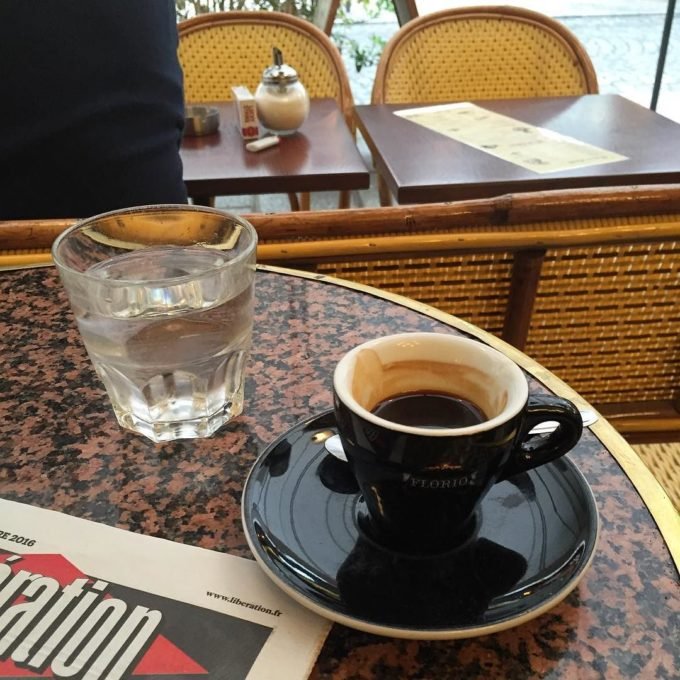
In Defense of Bad French Coffee

In Defense of Bad French Coffee
Espresso in Paris
It’s the bit of trivia I share more than any other: that France’s former colonial ties mean that over half the country’s coffee is still made from the lower quality Robusta beans. It forms part of my response to a common complaint visitors have about the French capital. Australians are the worst. As a friend’s brother from Sydney once memorably put it: “Lovely city, mate, but the coffee’s shithouse!”
I got the Robusta fact from this very publication. From Anna Brones’ great article about the woeful state of French coffee and the small but dedicated band of hipster-ish aficionados fighting back with single-origin filters, flat whites, and industrial chic. For a long time, the names of their establishments would be my next protest against the coffee snobbery of visitors. Their existence seemed important. As, for better or for worse, these days a lack of decent coffee also suggests a luddite city, out of step with the world.
I guess this was why I decided to bring up said businesses the other day when a friend visiting from California started to bemoan how stuck in the past Paris seemed.
“Not entirely,” I protested. “Like, it’s not all traditional bistros anymore. We’ll go to Café Lomi tomorrow, they’ve even got their own roasting business in—”
“Chris,” he cut me off, “in San Francisco, cars drive themselves.”
It was a watershed moment. I mean, self-driving cars might not seem to have much to do with good coffee, and I still don’t think that Paris really is stuck in the past, but it made me see that in some respects there’s no sense in forcing its small, artisan coffee industry into competition with the Brooklyns and Melbournes of this world. I resolved that the next time a visitor complained about the state of French coffee, I would respond by embracing its bad-ness.
Because here’s the thing: coffee in Paris is so much more than just a drink; it’s a license to be. That humble, bitter cup of espresso—made of factory- ground Robusta beans, and pressed through a coffee machine last cleaned when Carla Bruni was relevant—is the cheapest rent in the city. For the cost of two euros, it’s not unreasonable to linger in almost any Parisian café for upwards of two hours.
Compare that to even the very best siphon-brewed, locally roasted, Guatemalan Arabica and in my view, at least, it wins. Because time spent lingering in a Parisian café is the stuff of life. It is people-watching, or it’s reading through a stack of books, or it’s working on some never-to-be-discovered masterpiece, or it’s waiting for friends, or meeting up with friends; and it’s overhearing conversations and the clatter of the city and the rudeness of waiters (who’d probably be less rude if there were fewer people hanging out in their café for two hours on a single cup of coffee); and it means being invisible, while at the same time being an essential prop to one of the most iconic scenes that has ever existed. Yup, I’d take that over the Arabica any time.
Small-group trips with R&K
Journey alongside chefs, raconteurs, and Roads & Kingdoms for the deepest culinary tours on earth.
